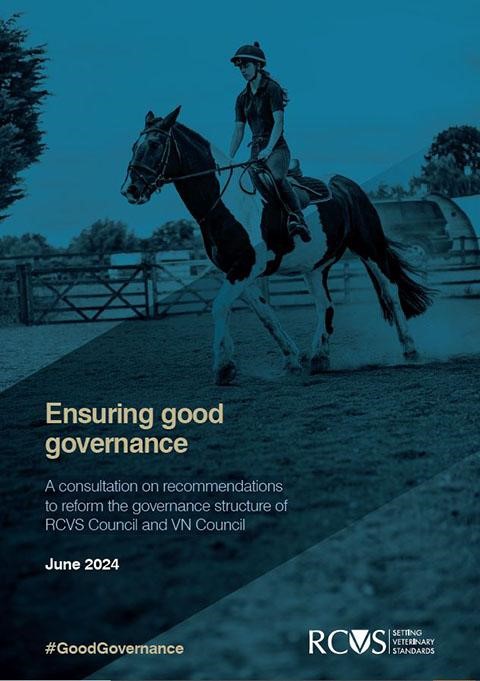The Royal College of Veterinary Surgeons (RCVS) has recently opened a consultation regarding its recommendations for changes to be made to both the RCVS Council and the Veterinary Nurses (VN) Council. We’re urging all veterinary nurses to contribute to this consultation, which has a closing date of Monday 22nd July 2024 at 5pm.
Feedback regarding these proposed changes will feed into the proposed reform of the Veterinary Surgeons Act, and therefore the future of the VN profession. You can find the RCVS proposals here.

“Why does this matter?” I hear you ask!
You will no doubt be aware that many, including BVNA, are calling for the outdated and unfit-for-purpose Veterinary Surgeons Act 1966 (VSA) to be reformed. In anticipation of the future opportunity to overhaul the VSA, the RCVS is developing proposals for how its governance will function under more modern legislation. This is now doubly important given that the CMA has identified the current regulatory framework as an area of their ongoing market investigation.
The consultation is looking to ensure that the proposed future composition of RCVS Council and VN Council enables the RCVS to regulate the veterinary profession “in the interests of the health and welfare of animals, and in the wider public interest.” This means that, as a regulator, the role of the RCVS is not to fulfil a representative role for the profession, but instead act in the interests of animals and the public.
The RCVS is also a ‘Royal College that regulates’ – which means it is currently unique to all other regulatory bodies, including those within human healthcare and medicine. Its current governance structure is therefore very different to the ‘norm’ for other regulators, which must be considered given that this is the College’s key role and purpose.
As RCVS Council provides governance of the RCVS, its composition does not just impact vets; it has a direct impact on how the VN profession is regulated too.
The function of RCVS Council is supported on veterinary nursing matters by VN Council, which has a number of responsibilities that directly affect every SVN and RVN in practice. For example, it sets the standards for the training and education to become an RVN. This means those sitting on VN Council decide what RVN training looks like, and ultimately, what the RVN of the future is able to do. VN Council also maintains the RCVS Register of Veterinary Nurses, and recommend the annual fees of remaining on the Register.
So, what does this all mean and why should you consider giving feedback?
The consultation process can be confusing, and language used in documentation doesn’t always lend itself to clarifying important points. So, here is a summary of the RCVS proposals (access the full recommendations here):
RCVS Council
1.1 – Members of RCVS Council are appointed via an independent process, not elected
1.2 – RCVS Council to have parity (the same number) of lay people and professional members
1.3 – Veterinary Schools Council appointees are removed
1.4 – Flexibility will be built into future structure so that as additional allied professions come under the remit of RCVS, the proportion of allied professionals can be increased*. However, veterinary surgeons would always have the majority amongst the professionals on RCVS Council.
1.5 – The RCVS President role may be separated from the Chair of RCVS Council, who could instead be an RCVS registrant or lay person.
*Currently, two RVNs sit on RCVS Council as ‘allied professionals’. BVNA is currently seeking clarity on whether it is possible this number may change in future, and whether there is a risk RVNs may not be represented if the number of allied professionals increases.
VN Council
2.1 – Like RCVS Council, members of VN Council are appointed via an independent process, not elected
2.2 – VN Council is reduced to 12 members, from the current 14, in line with the current regulatory norm**
2.3 – VN Council to have parity (the same number) of lay people and professional members
**BVNA is seeking clarity on a) why this number should be different from RCVS Council, and b) the evidence for RCVS Council requiring double the number of members of the standard regulatory norm (10-12 members).
- Do you feel these proposals meet the needs of the veterinary nursing profession of today (and of the future)?
- Are there any further changes you feel are necessary to reflect the needs of the veterinary nursing profession?
- What could be the impact of implementing these recommendations?
- Are there any other arguments you feel the RCVS has not considered?
BVNA is currently preparing a response to this consultation. We are keen to see a governance framework which reflects the modern veterinary nursing profession – as a regulated and respected profession, a vital and integral part of the veterinary team, with a significant role in championing animal welfare.
Your voice matters – please ensure you use the opportunity to respond by 5pm on Monday 22nd July 2024.
